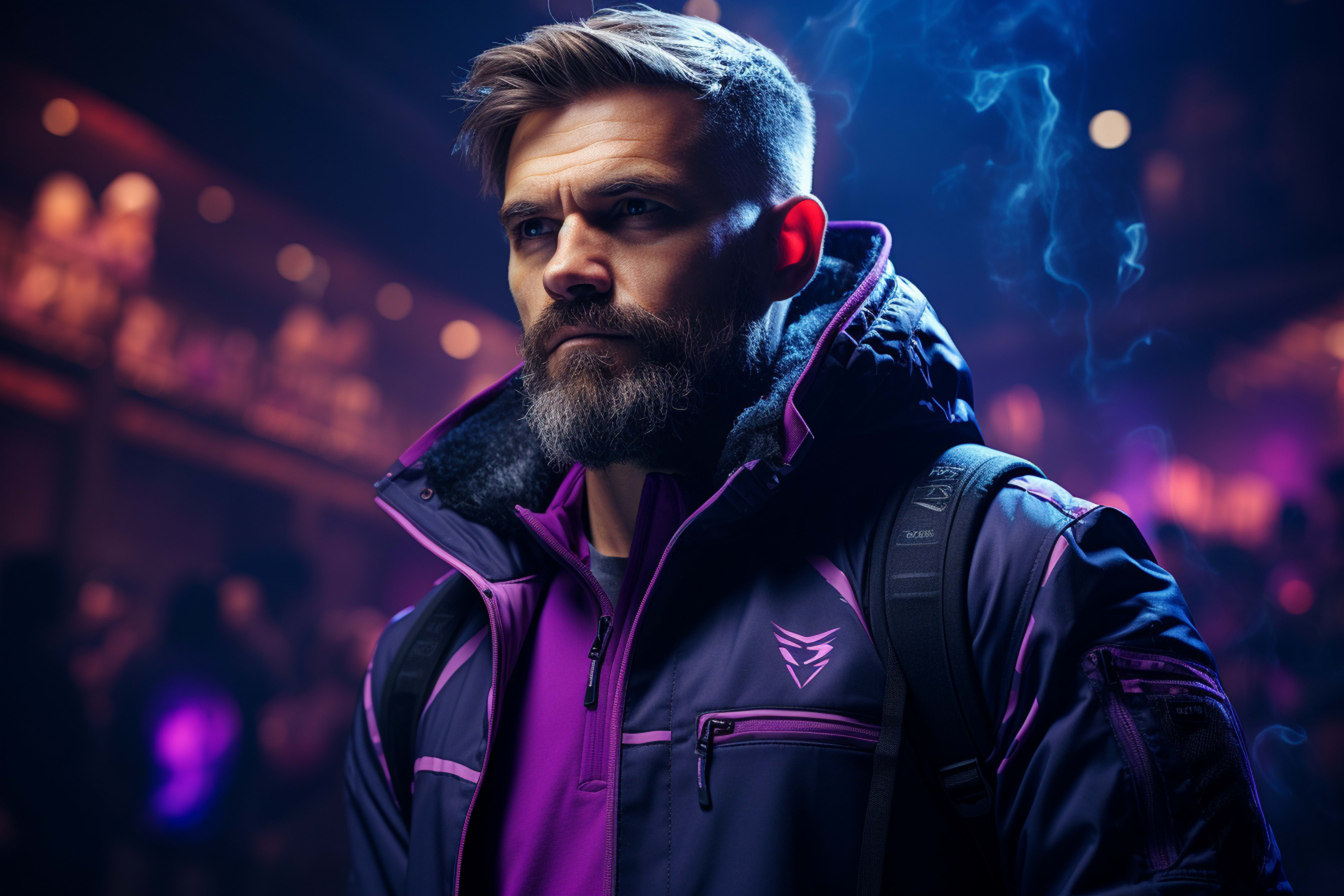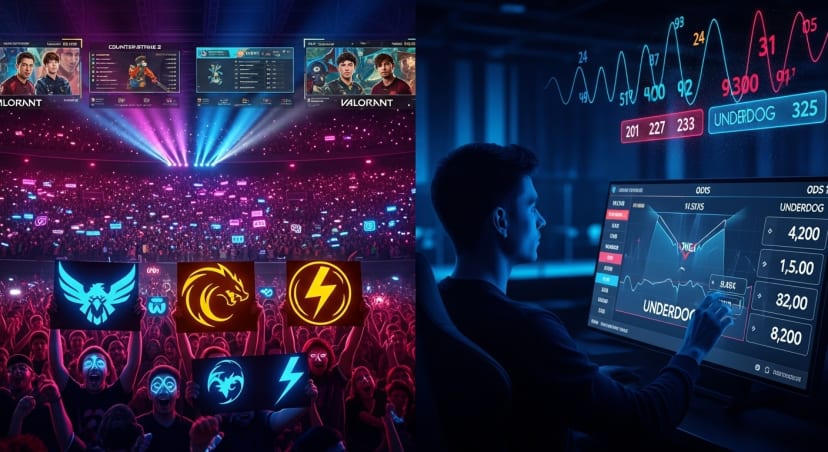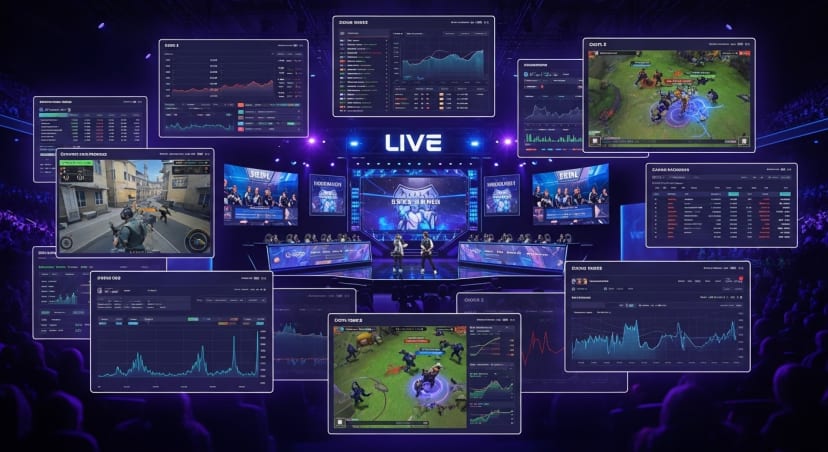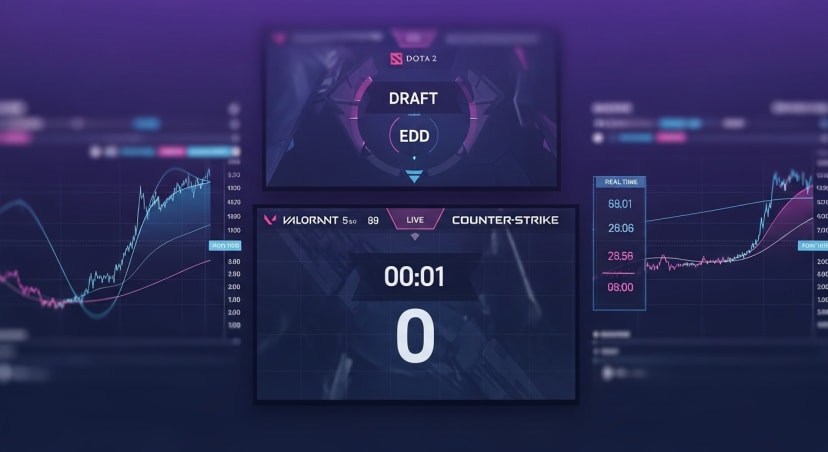If you're interested in esports, you might have noticed a posting for a coach at a university or a smaller, grassroots organization. You may wonder, "What are esports coaches or esports coaching, and why are they so important to the gaming industry, especially for Bangladesh players?"
A successful esports team has a dedicated coach who helps them strategize, assess the opposition, build team unity, boost morale, guide individual players, and win tournaments. For maximum results, esports coaches collaborate with esports executives and esports analysts.
What is Esports Coaching?
Coaching in esports includes providing expertise, devising strategies, and fostering cohesion among players. As a team, gamers in Bangladesh need to work on their communication, playing skills, and ability to let go of personal issues and focus on the team. They need to do things to strengthen their connections with one another regularly.
Here, we'll discuss whether or not esports coaching jobs are the correct path for you, as well as the precise duties of an esports coach, how those duties could change depending on the size of the team, the type of game being coached, and other factors relevant to esports enthusiasts in Bangladesh.
The Responsibilities of Esports Coaches in Bangladesh
In esports, the coach's primary focus is on the team rather than individual players, as it would be for a conventional manager. Success will result from the athletes' enhanced ability on the field and the elimination of non-sporting stresses, such as physical problems and emotional burdens encountered by players in Bangladesh.
An esports coach is typically responsible for the following duties:
- Determine the current meta and use that information to develop winning strategies that leverage your team's abilities.
- Enhance player-to-player communication. This can be achieved through team-building exercises and the analysis of game footage to identify crucial instances of miscommunication.
- Employ various techniques to keep your team's spirits high and instill a winning mindset on the virtual field.
- Address any player concerns and offer guidance on those issues so they can focus on their game without distraction.
- Ensure the team has all necessary gear and apparel before traveling for competitions. This includes player jerseys, sponsor gear, and other items featuring the team's logo.
- Arrange friendly matches or scrimmages between teams to provide additional opportunities to hone their skills.
- Collaborate with club managers to decide which tournaments to enter. If the coach is an employee, ensure that players being considered for release have received adequate support from the team.
- If team analysts are available, collaborate with them to examine detailed game statistics and play-by-play accounts to pinpoint the team's most significant weaknesses. Analysts would also work with team management to study the competition and determine the best preparation for upcoming matchups.
That's a detailed overview of the duties of esports coaches, but it's important to remember that a coach's workload might vary depending on the scale of operations for the club.
Here, we'll further elaborate on what esports coaches do to clarify their roles.
Team Strategy Development and Analysis
As a coach, you should strive for a maximum victory percentage. In this way, everyone wins — the clubs and the players. Therefore, one of the greatest approaches to achieving this goal is to engage a top-notch crew with superb strategies.
Take the popular MMORPG League of Legends as an example. There are over 150 playable characters, 180 pieces of equipment, five player roles, five rune routes, 55,000+ rune permutations, and updates to the game every two weeks, along with a new or updated champion every month or so. There's a lot to think about in terms of strategy, with having to decide on characters, runes, and builds.
Plus, there is a gray area involved. Every aspect of the game, from the champions picked to the items crafted to the runes cast, must be flexible enough to adjust to the abilities of the other side, the player's skills, and the game's circumstances. If the other team lacks a core champion capable of inflicting magic damage, for instance, our team may choose to run three tanky champs and change our build to improve our physical-damage neglecting (known as armor).
This is a very basic illustration of how players may customize game mechanics. Each player's potential actions within the context of a larger strategy are another component. A major focus of games like Counter-Strike: Global Offensive and Valorant is on this mechanic.
Use the Valorant map Haven as an example, and concentrate on the assaulting side. The main distinguishing factors between teams, other than the competence of their players, are the characters they choose to play, the weapons they purchase, and the role that these factors play in the team's overall strategy.
In a game like Valorant, they are destined to fail if the team doesn't apply a smart strategy. It falls on the coach's hands to implement this plan, since they are less emotionally invested in the game than the players are and can see the big picture.
Developing the Strengths of the Current Team
Simply put, a player's success in this one is directly proportional to how well they play. It's a win-win situation: the more they achieve, the more people tune in, and the more cash everybody makes.
The coach will often organize scrims or scrimmages to help the players get better. To try out new tactics and plans in a game-like setting without the pressure of real competition, several sports provide exhibition games against teams of similar quality. There is often no stake in either outcome of these contests.
The one caveat with scrims is that the other side can anticipate and prepare for your plan if you use it.
It is the coach's responsibility to facilitate effective communication among team members. Team-building exercises, paying attention to when an otherwise silent player must speak, and recognizing the emergence of developing tensions between players and addressing them before they escalate are all effective means toward this end.
Team Attitude and Concentration
This is a crucial consideration for competitive teams and tournament entries. Unlike in scrimmages, the stakes are much higher in real games, and the results often directly impact the ROI for the companies who are footing the bill for both the players and the coach.
If the team cannot perform adequately in these games, the coach may be fired, the players may lose their starting positions, and the orgs may reduce their salaries. The obligation is on the coach to prevent these slip-ups from causing the players to throw away their hard work.
Best Serving the Interests of the Company
As with any other business, professional esports sites must ensure that they will earn a profit from their investments. These would be investments with longer maturity and anticipated financial gains for the business.
Naturally, as an esports coach, you'd want your players to give their best performance at competitions so that they may gain the most exposure possible. However, the coach occasionally offers advice during the few competitions in which an esports squad will participate. A top-level squad shouldn't waste time and money competing in a lower-level event when they may be practising for a higher-level competition instead.
Or the team will receive positive publicity in return, leading to a quiet but significant advantage in the long run in that area. It could be a charity event where the players may bring donations for the cause of their choice, and the team gets some positive press. Although the general manager and team management are normally responsible for these decisions, a coach may be included in such conversations.
Lastly, the eSports coach's salary must be justified by the benefits he provides to the company. If we don't do that, we'll have to make adjustments at our end of the team.

Should You Start Looking at eSports Coaching Jobs?
You should make several considerations before deciding whether or not to pursue esports coaching. In this part, we'll quickly go through those considerations so you can decide if being a coach is the right choice for you.
Commanding Respect
The extent to which you command the respect of the other players is crucial. If you're a gamer and can appreciate all the hard work the gamers put in, you'll get this. You may find this easier if you have previous experience as a competitive player, especially at a high level.
However, there are many additional components to a respected person. Consider if you treat your athletes with respect while maintaining your position of control. You must stand your ground and defend your position without losing your cool or getting into frequent fights.
Are you prepared to shield your squad from the outside world and prioritize your players above everything else? How well do you grasp the team's ultimate goal and the challenges they face to achieve it?
All leaders, but especially all coaches, need to have these qualities. Coaches in both traditional sports and esports need to strike a balance between being approachable and commanding the respect of their squad.
Solid Knowledge of Gaming and Competitive Play
Like a traditional sports coach, an eSports coach needs to be well-versed in both the gameplay and the competitive landscape. It's hard to conceive of a basketball coach who isn't passionate about the game. The same is true for coaches in esports (albeit, like in traditional sports, this is only sometimes the case for the management).
One more thing you'd need is familiarity with the local competition. You could have played at a lower level to benefit from that, but it helps. Instead, you should learn all there is to know about the competitive scene, including the game's terrain, the ever-shifting meta, the challenges players face, and the steps that must be taken for a team to succeed.
Your coaching effectiveness and ability to help your team will improve if you follow the advice in the second to last paragraph. To find a solution to this problem, you will need to spend a lot of time learning about the environment. However, with hard work and self-discipline, anyone may move from a complete novice to a candidate for a coaching position.
Final Thoughts
You might argue that eSports coaching jobs are the new "it" career for gamers who want to make a living doing what they love. Remember, though, that you'll have to put in some time and effort before you can call yourself an esports coach and take on eSports coaching duties. It is time-consuming and labor-intensive. The key to being a great gamer is to specialize in one activity. Watching professional players and esports competitions, you may learn a lot about the game's meta and other details.
An esports coach may make anything from $20,000 to $152,000 a year, so it's clear that this is a viable professional option. If you have what it takes to do what eSports coaches do, it may be a great moment to launch a career as an esports coach if that's something you've been thinking about.
FAQ
What Exactly is an eSports Coach in Bangladesh?
An eSports coach is a professional who guides and mentors players and teams in competitive gaming, focusing on strategies, skill improvement, and team dynamics, particularly within the context of the growing eSports scene in Bangladesh.
How Does an eSports Coach Contribute to a Team's Success?
An eSports coach contributes significantly to a team by analyzing gameplay, developing winning strategies, conducting effective practice sessions, and providing crucial psychological support to enhance overall performance and teamwork.
What Skills are Essential for an eSports Coach in the Bangladeshi Context?
Essential skills for an eSports coach include in-depth game knowledge, strategic thinking, strong communication skills, leadership qualities, and the ability to analyze and improve team dynamics, all tailored to the specific challenges and opportunities within the Bangladeshi eSports community.
Can eSports Teams in Bangladesh Compete Effectively Without a Coach?
While eSports teams can technically compete without a coach, having one significantly improves their chances of success by providing expert strategic guidance, focused skill development, and essential moral support, especially in a competitive environment.
How Does One Become a Successful eSports Coach?
Becoming an eSports coach typically involves gaining extensive experience in the relevant game, developing a deep understanding of team dynamics, and honing coaching skills through practical experience and potentially formal training programs or certifications.
















